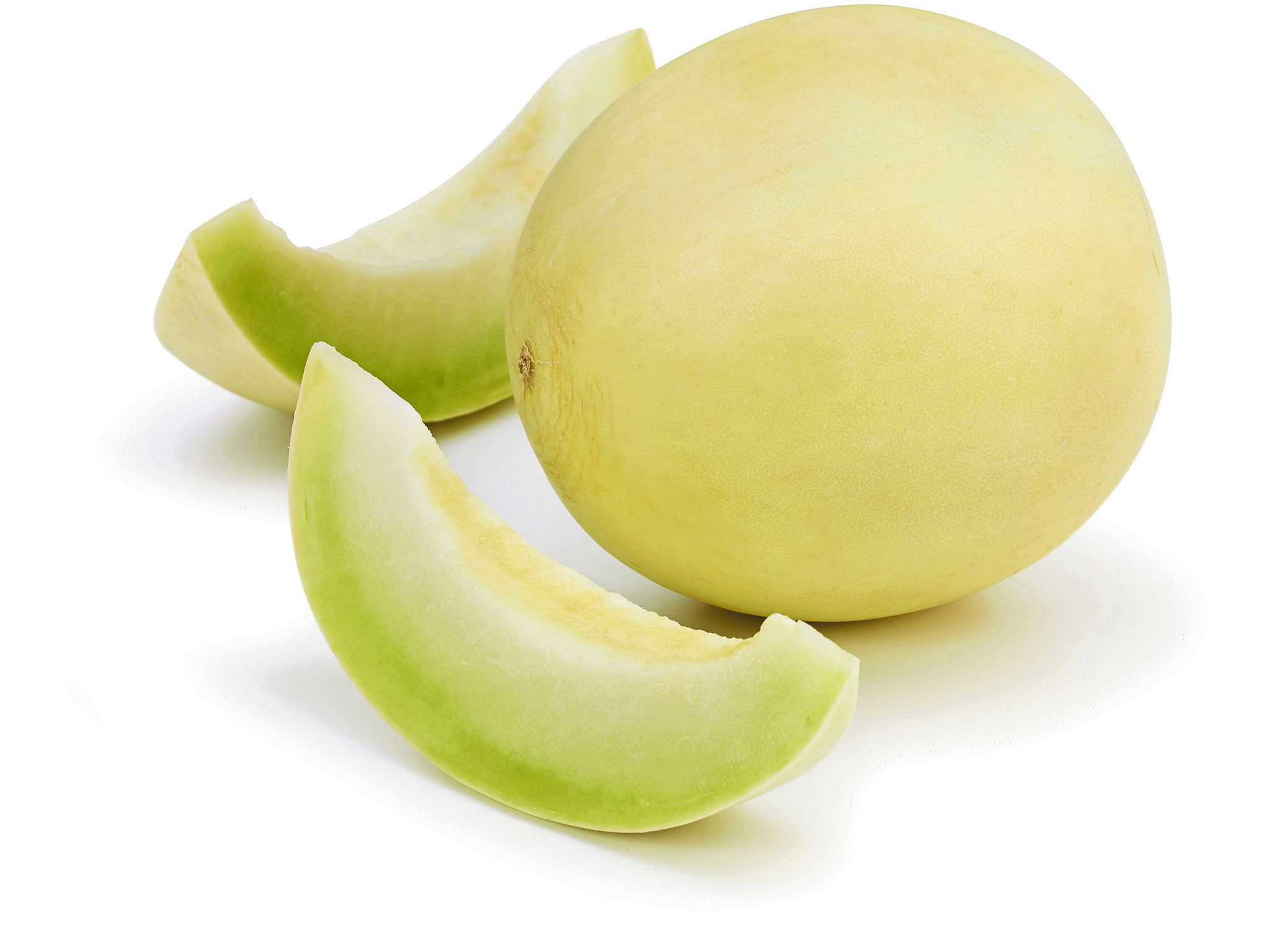Last week we dove into the world of cantaloupe. This week, we want to slide right into honeydew melons since they are indeed related via the gourd family. We discovered and shared with you the incredible and likely unknown list of benefits that came along with the water-based fruit because bringing the awareness of digging into and exposing the nutritional value of each commodity is essential to us. Frequently, we lean towards a certain fruit because it tastes good – we know many of these delicious fruits have high water content, often upwards of 95 percent. We believe that extra 5 percent deserves to have light shed upon it because it is shocking how many ailments in the body can be addressed in a whopping 5 percent! With that, let’s dig into honeydews and see if we get similar results as we have with many of the fruits we’ve already studied and shared with you.
Honeydew
Have you ever heard of the “white Antibes?” Not many people have. So here’s your lesson for the day – white Antibes are a variety of melons that were cultivated in southern France and Algeria many centuries ago. Honeydew is the American name for white Antibes – us Americans tend to come up with our own names for things if you haven’t noticed! So where in France did these beauties start making an appearance? Cavaillon is a town in Provence, France and they take their title of “World Capital of Melons” very seriously. Honeydews are certainly no exception to this.
Ready for a fun fact? Alexandre Dumas, a famed novelist, is said to have asked for a dozen melons per year until he died as a barter exchange for donating his life works to the public library! We weren’t kidding when we said this place and the people take their melons very, very seriously!
Enough history already! Let’s dive into the good stuff. You are likely familiar with honeydews as a round, heavy shape similar to the cantaloupe. The inner flesh is sweet and a light green color. Coming in at 64 calories for a cup of chopped honeydew, we are looking at 16 carbs, 1.4 grams of fiber, vitamin C, B6, and K, folate, potassium and magnesium, beta-carotene and even more antioxidants. With the low-sodium levels in the honeydew melon, it is linked to lower blood pressure levels. A notable fact with honeydew melons is also the contribution it has to bone health via the folate, vitamin K, and magnesium.
Additionally, there is a small amount of ‘bone-supporting nutrients,’ which include phosphorus, zinc, and calcium.
Coming in at 90 percent water, honeydews are packed with electrolytes and high water content. The list of the benefits of these melons are lengthy and again, surprising for a solid 10 percent of what’s left after water content. From promoting proper digestion to healthier skin to boosting the immune system, to supporting eye and vision health, we have another powerful, antioxidant fruit packed with seemingly endless vitamins and minerals.
What can we conclude and take away from all of this?
It’s plain and simple. Honeydew melons will dew you well any day of the week.


Western Veg-Produce, Inc.
PO Box 82217
Bakersfield, CA 93380
Office: 1-800-WVegPro (983-4776)
Fax: 1-661-637-2365
Sales: sales@wvegpro.com
Accounting: accounting@wvegpro.com


